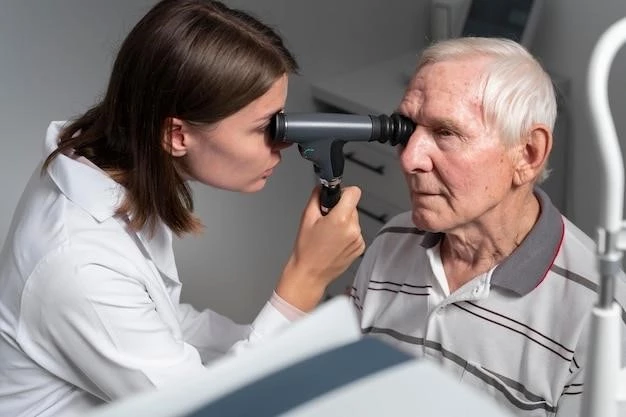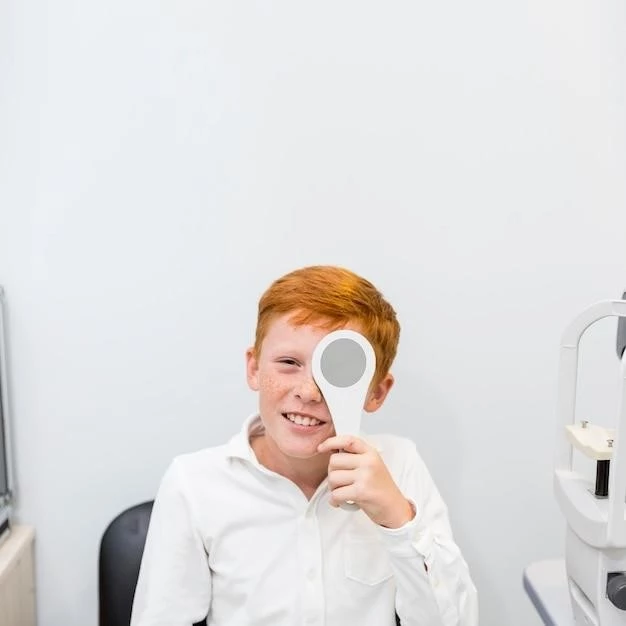Introduction
Today‚ we explore a rare developmental defect syndrome characterized by the association of microcornea‚ glaucoma‚ and absent frontal sinuses. This condition presents challenges in diagnosis and treatment.
Overview of Microcornea Glaucoma Absent Frontal Sinuses
Microcornea glaucoma absent frontal sinuses syndrome is a rare developmental defect characterized by microcornea‚ glaucoma‚ and frontal sinus hypoplasia. This syndrome‚ with fewer than 10 reported cases‚ presents challenges in diagnosis and management. The mode of transmission appears to be autosomal dominant‚ and typical features include thick palmar skin and torus palatinus. Genetic mutations play a key role in the etiology of this syndrome‚ impacting heredity and occurrence. Diagnosis involves recognizing the unique ocular and sinus abnormalities associated with the condition‚ often requiring a multidisciplinary diagnostic team consisting of genetics and ophthalmology specialists. Moreover‚ research into the genetics of this syndrome continues to advance our understanding of its underlying mechanisms‚ providing hope for improved diagnosis and management strategies in the future.
Clinical Presentation
The syndrome manifests with microcornea‚ glaucoma‚ and absent frontal sinuses. Less than 10 cases have been reported. Autosomal dominant inheritance pattern is likely. Additional findings may include thick palmar skin and torus palatinus. It’s crucial to recognize these ocular and sinus abnormalities for early intervention.
Features and Symptoms
The rare syndrome combines microcornea‚ glaucoma‚ and absent frontal sinuses. Research indicates an autosomal dominant inheritance pattern. Additional characteristics may include thick palmar skin and torus palatinus. Timely identification of ocular and sinus abnormalities is crucial for effective intervention.

Diagnosis
Diagnosis of Microcornea Glaucoma Absent Frontal Sinuses involves recognizing the unique ocular and sinus abnormalities associated with the syndrome. Multidisciplinary diagnostic teams that include genetics and ophthalmology specialists play a vital role in identifying this rare condition.
Diagnostic Methods
Diagnostic methods for Microcornea Glaucoma Absent Frontal Sinuses involve clinical evaluation of ocular and sinus abnormalities. Imaging techniques such as CT scans may be utilized to assess the presence of frontal sinus hypoplasia. Genetic testing plays a crucial role in confirming the diagnosis and identifying underlying mutations associated with this rare syndrome.
Epidemiology
The syndrome‚ characterized by microcornea‚ glaucoma‚ and absent frontal sinuses‚ is exceptionally rare‚ with fewer than 10 cases reported. The inheritance pattern is likely autosomal dominant. Proper recognition and diagnosis are essential due to the limited prevalence of this condition.
Prevalence and Incidence Rates
The syndrome‚ characterized by microcornea‚ glaucoma‚ and absent frontal sinuses‚ is exceptionally rare with less than 10 cases documented. The mode of transmission likely follows an autosomal dominant pattern. Early recognition and diagnosis are critical due to the limited number of reported instances of this condition.
Genetics
The syndrome‚ a rare developmental defect‚ involves a combination of microcornea‚ glaucoma‚ and absent frontal sinuses. Genetic mutations play a crucial role‚ possibly following an autosomal dominant pattern of inheritance. Further research is needed to understand the underlying genetic mechanisms.
Mode of Inheritance
The rare syndrome‚ characterized by microcornea‚ glaucoma‚ and absent frontal sinuses‚ appears to follow an autosomal dominant pattern of inheritance. Genetic mutations play a significant role in the disease etiology‚ impacting the hereditary transmission of the condition. Further research is essential to elucidate the precise genetic mechanisms underlying this syndrome.
Treatment
Treating Microcornea Glaucoma Absent Frontal Sinuses involves managing ocular and sinus abnormalities. Early diagnosis is crucial. Support groups and genetic counseling can aid in developing personalized management strategies for individuals with this rare syndrome.
For individuals with Microcornea Glaucoma Absent Frontal Sinuses‚ accessing support groups and services can provide valuable assistance and resources. These platforms offer opportunities for individuals and families to connect‚ share experiences‚ and access information related to this rare developmental defect syndrome. Additionally‚ services such as genetic counseling and specialized medical care can contribute to improved management and support for those affected by this condition.

Prognosis
The prognosis for individuals with Microcornea Glaucoma Absent Frontal Sinuses can vary depending on early diagnosis and management. Long-term outcomes may involve ongoing ocular and sinus care‚ emphasizing the importance of genetic counseling and personalized treatment plans.
Outlook for Patients
Individuals diagnosed with Microcornea Glaucoma Absent Frontal Sinuses face a unique prognosis that can vary based on early detection and management. Given the rarity of the syndrome‚ personalized treatment plans‚ genetic counseling‚ and ongoing monitoring are essential for improving outcomes and enhancing the quality of life for those affected by this condition.
Research and Studies
Research on Microcornea Glaucoma Absent Frontal Sinuses involves family studies‚ genetic mutations‚ and unique cases. Studies highlight the importance of early recognition and management of this rare developmental defect syndrome.
Recent Findings
Recent studies have focused on family genetics‚ identifying genetic mutations associated with microcornea‚ glaucoma‚ and absent frontal sinuses. Strong emphasis is placed on early recognition and management of this unique syndrome to improve patient outcomes.
Support Resources
Support groups‚ genetic counseling‚ and specialized medical care are essential for individuals with Microcornea Glaucoma Absent Frontal Sinuses. These resources provide valuable assistance and information for managing this rare developmental defect syndrome.
Support Groups and Services
For individuals and families affected by Microcornea Glaucoma Absent Frontal Sinuses‚ support groups offer valuable connections‚ sharing opportunities‚ and vital information. Genetic counseling and specialized medical care play essential roles in managing this rare syndrome.
Future Directions
Future research on Microcornea Glaucoma Absent Frontal Sinuses aims to advance genetic studies and treatment options. Understanding the precise genetic mechanisms and developing targeted therapies are crucial for improving outcomes in individuals with this rare syndrome.
Advancements in Understanding the Disease
Recent advancements have focused on better understanding the genetic mutations associated with Microcornea Glaucoma Absent Frontal Sinuses. Notably‚ studies highlight the importance of early recognition and comprehensive management approaches to improve patient outcomes and quality of life.
